Filter by
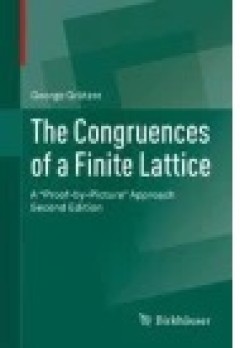
The Congruences of a Finite Lattice
"There exist a lot of interesting results in this area of lattice theory, and some of them are presented in this book. [This] monograph…is an exceptional work in lattice theory, like all the contributions by this author. … The way this book is written makes it extremely interesting for the specialists in the field but also for the students in lattice theory. Moreover, the author provides a …
- Edition
- -
- ISBN/ISSN
- 978-3-319-38798-7
- Collation
- XXXIV, 346
- Series Title
- 978-3-319-38798-7
- Call Number
- -

Bacterial Exotoxins : how bacteria fight the immune system
Bacterial pathogenicity factors are functionally diverse. They may facilitate the adhesion and colonization of bacteria, influence the host immune response, assist spreading of the bacterium by e.g. evading recognition by immune cells, or allow bacteria to dwell within protected niches inside the eukaryotic cell.
- Edition
- -
- ISBN/ISSN
- -
- Collation
- -
- Series Title
- -
- Call Number
- 579 MON b
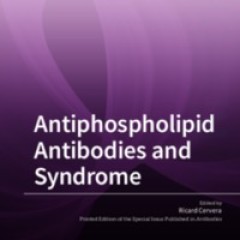
Antiphospholipid Antibodies and Syndrome
Antiphospholipid syndrome (APS) is an autoimmune disorder caused by antiphospholipid antibodies. It was characterized by excessive clotting of blood and/or certain complications of pregnancy (premature miscarriages, unexplained fetal death, or premature birth) and the presence of antiphospholipid antibodies (such as anti-cardiolipin antibodies or lupus anticoagulant) in the blood. Fifty percent…
- Edition
- -
- ISBN/ISSN
- 978-3-03842-948-7
- Collation
- -
- Series Title
- -
- Call Number
- 579 ANT
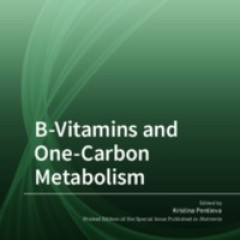
B-Vitamins and One-Carbon Metabolism
Folate, vitamin B12, vitamin B6 and riboflavin play a key role as coenzymes in one-carbon metabolism which, in turn, is essential for a broad range of fundamental physiological processes, including RNA and DNA synthesis, cell division, tissue growth and methylation. Deficiencies or imbalance of B-vitamins, as well as genetic polymorphisms and environmental factors, are shown to disturb the norm…
- Edition
- -
- ISBN/ISSN
- 978-3-03842-974-6
- Collation
- -
- Series Title
- -
- Call Number
- 579 BVI

Advances in Heat Transfer Enhancement
This Brief addresses the phenomena of heat transfer enhancement. A companion edition in the SpringerBrief Subseries on Thermal Engineering and Applied Science to three other monographs including “Critical Heat Flux in Flow Boiling in Microchannels,” this volume is idea for professionals, researchers, and graduate students concerned with electronic cooling.
- Edition
- Ed. 1
- ISBN/ISSN
- 978-3-319-29480-3
- Collation
- VIII, 129
- Series Title
- -
- Call Number
- 621.4 ADV a
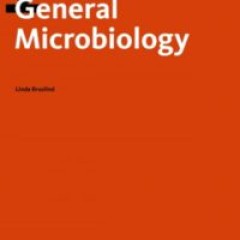
General Microbiology
Welcome to the wonderful world of microbiology! Yay! So. What is microbiology? If we break the word down it translates to “the study of small life,” where the small life refers to microorganisms or microbes. But who are the microbes? And how small are they? Generally microbes can be divided in to two categories: the cellular microbes (or organisms) and the acellular microbes (or agents). In…
- Edition
- 1st Edition
- ISBN/ISSN
- -
- Collation
- -
- Series Title
- -
- Call Number
- 579 BRU g

OER : A Field Guide for Academic Librarians
We intend this book to act as a guide writ large for would-be champions of OER, that anyone—called to action by the example set by our chapter authors—might serve as guides themselves. The following chapters tap into the deep experience of practitioners who represent a meaningful cross section of higher education institutions in North America. It is our hope that the examples and discuss…
- Edition
- -
- ISBN/ISSN
- 9781945398797
- Collation
- -
- Series Title
- -
- Call Number
- 025 OER
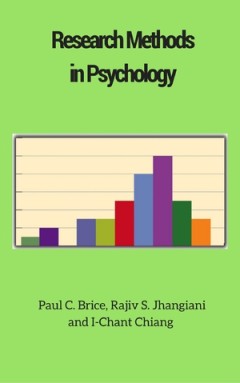
Research Methods in Psychology
While Research Methods in Psychology is fairly traditional— making it easy for you to use with your existing courses — it also emphasizes a fundamental idea that is often lost on undergraduates: research methods are not a peripheral concern in our discipline; they are central.
- Edition
- -
- ISBN/ISSN
- -
- Collation
- -
- Series Title
- -
- Call Number
- 150.72 PRI r
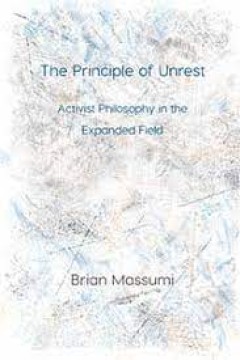
The Principle of Unrest
There is no such thing as rest. The world is always on the move. It is made of movement. We find ourselves always in the midst of it, in transformations under way. The basic category for understanding is activity – and only derivatively subject, object, rule, order. What is called for is an ‘activist’ philosophy based on these premises. The Principle of Unrest explores the contemporary im…
- Edition
- -
- ISBN/ISSN
- 9781785420443
- Collation
- -
- Series Title
- -
- Call Number
- 100 MAS p
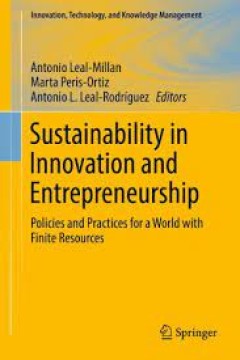
Sustainability, Innovation, and Entrepreneurship
This book is suited for the Entrepreneurship or Innovation course with an emphasis on Sustainability or for a course devoted entirely to Sustainability. What are the trends and forces underlying the changing character of the business-environment relationship? How they are creating significant entrepreneurial opportunities for individuals and companies? Around the world, the movement toward �…
- Edition
- -
- ISBN/ISSN
- -
- Collation
- -
- Series Title
- -
- Call Number
- 330 LAR s
 Computer Science, Information & General Works
Computer Science, Information & General Works  Philosophy & Psychology
Philosophy & Psychology  Religion
Religion  Social Sciences
Social Sciences  Language
Language  Pure Science
Pure Science  Applied Sciences
Applied Sciences  Art & Recreation
Art & Recreation  Literature
Literature  History & Geography
History & Geography